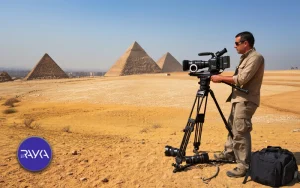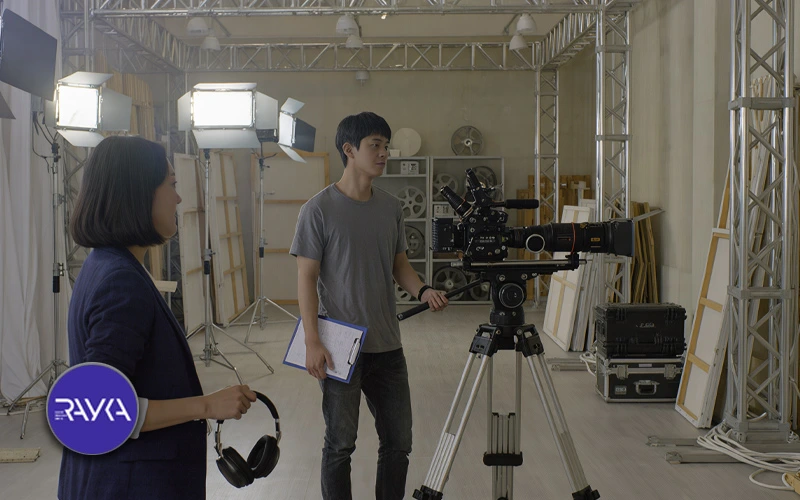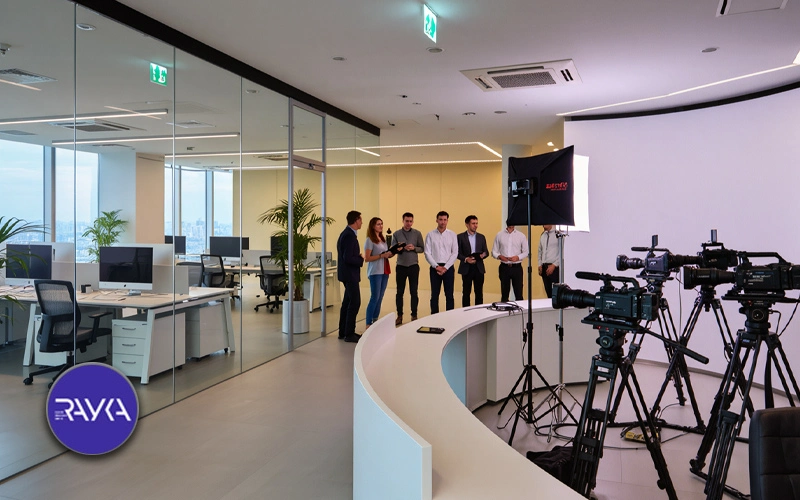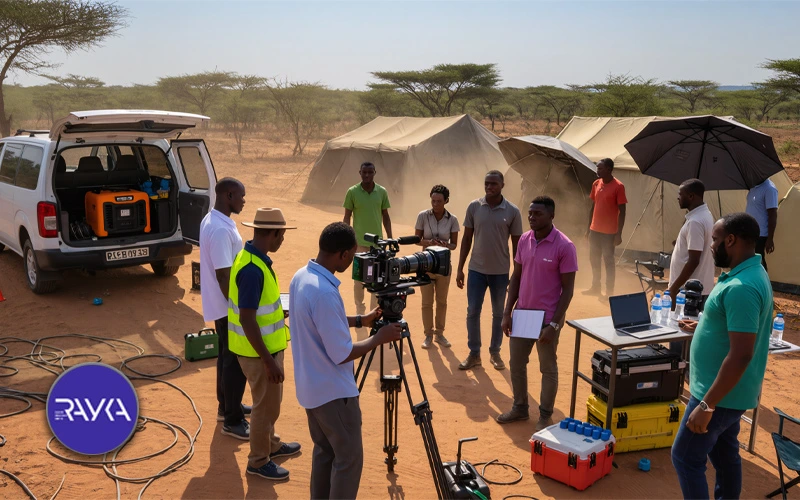
Industrial documentary films serve as one of the most effective tools for showcasing manufacturing and technical businesses, playing a key role in presenting a company’s true capabilities. Relying on realism and documentary storytelling, this type of content provides an accurate and trustworthy depiction of production processes, technologies, and human resources. Unlike stereotypical advertisements, industrial documentaries focus on authenticity, expertise, and behind-the-scenes industrial activities, thereby earning the trust of professional audiences and business partners.
Alongside this, industrial promotional clips complement such content. With a faster, message-focused style, they are particularly suitable for social media and trade shows. Brands that effectively utilize both types of visual tools not only enhance their professional image but also improve success in attracting investors, B2B clients, and even expanding into exports.
An industrial documentary is a realistic, fact-based video that depicts a company’s production processes, equipment, personnel, and operations without exaggeration. It is designed to showcase the expertise and capabilities of a manufacturing or industrial brand.
Industrial documentaries focus on revealing the real behind-the-scenes activities of a company—from raw material input to the final product output. This type of storytelling avoids artificial effects and familiarizes the audience with the technical and operational details of the industry. The goal is to present a clear, precise, and credible image of the company’s activities, conveying trust and professionalism to viewers.
These videos are not only used for company introductions but also serve as credible visual documents in business meetings, tenders, B2B collaborations, and industrial exhibitions.
Industrial documentary films have a wide range of applications across industries, helping companies present a more professional and reliable image of themselves.
These applications are effective not only for marketing and promotion but also for training, attracting investors, and historical documentation. The key applications include:

In the industrial and marketing world, there are two commonly used types of video clips, each serving a distinct purpose: industrial clips and promotional clips. Many people and even companies confuse the two, but there are important differences between them.
| Feature | Industrial Clip | Promotional Clip |
|---|---|---|
| Main Goal | Showcase production processes and highlight expertise | Persuade purchase and engage audience emotions |
| Narrative Format | Documentary-style, realistic, with linear storytelling | Emotional, fast-paced, sometimes with actors |
| Target Audience | Business partners, investors, managers | General customers and consumers |
| Level of Acting | Minimal or none | Sometimes uses models or promotional actors |
| Editing Style | Calm, analytical, and realistic | Exciting, music-driven, and fast-paced |
Today, artificial intelligence has become one of the key tools in content production, and creating industrial documentary films is no exception. With AI, complex production processes, data analysis, and even video editing can be performed with greater accuracy and speed.
This technology enables the creation of high-quality films, smart graphics, and engaging narratives that previously required expensive equipment and large teams.
Using AI in industrial documentary filmmaking has brought a significant transformation in production quality and speed. It helps you create films that are more precise, professional, and cost-effective, conveying your company’s message to the audience in the best possible way.
If you want to take advantage of AI-driven documentary production, Rayka Mah, specializing in various industrial films and promotional videos, is ready to provide professional services. Using the latest AI technologies and a skilled team, Rayka Mah can produce high-quality films in a short time, meeting your industrial and promotional needs effectively.
Industrial filming comes in various types, each created with a specific purpose. Understanding these types helps you choose the best filming style to showcase your company or product. Here are the four main types of industrial filming:
This type of filming aims to fully introduce the company, including its history, workflows, and personnel. The film is designed so the audience becomes familiar with the company’s identity and values, helping increase credibility and attract potential clients.

Product introduction teasers are short and engaging clips highlighting the features and benefits of a product. These videos are usually designed to quickly capture audience attention and encourage purchase. In industrial teasers, emphasis is placed on the product’s quality and innovation.
These films narrate the company’s founding story and growth path in a realistic, documentary style. Their goal is to build an emotional connection and trust between the audience and the brand. Industrial documentary films provide a clear and precise image of the company.
These videos focus on teaching the correct use of industrial products. They aim to increase user knowledge and reduce potential errors. Educational films enhance customer satisfaction and reduce the need for technical support.
In today’s competitive market, brand visibility is not limited to direct advertising. Industrial films and promotional teasers serve as smart and impactful tools, holding a special place in marketing and branding strategies for industrial companies.
These contents not only showcase your business professionally but also communicate the technical and human values behind your brand authentically and memorably. The main reasons to use industrial teasers include
Creating a successful industrial film or teaser requires careful planning and step-by-step execution. Each stage plays a crucial role in shaping the final output, from brand understanding to final editing.
In this process, attention to technical details, audience targeting, and using modern tools like AI significantly affects the quality and effectiveness of the project. Here are the steps in detail:
The production team meets with company managers to understand the brand’s mission, vision, values, and objectives. This information forms the foundation for all creative decisions in later stages. Without a clear understanding of brand identity, effective content creation is impossible.
The teaser’s script is designed based on project goals and the brand’s tone. Storytelling should be logical, engaging, and realistic. Using AI allows for intelligent data analysis and narrative structure suggestions.
Before production day, the filming team visits the factory or project site. This helps in understanding lighting, sound, movement space, and scheduling. The output of this stage is a detailed production plan.

Using professional cameras, motion equipment, and sometimes drones, the main filming is carried out. Attention to lighting, angles, and scene composition is critical. Recording interviews and sound also happens at this stage.
Raw footage is cut and arranged sequentially. Narration, music, color correction, and supplementary graphics are added. AI can accelerate and improve some tasks like voice-over or automated editing.
The final film is prepared for various platforms like websites, Instagram, Aparat, or exhibitions. Format, duration, and resolution are adjusted based on the platform. Subtitles, watermarks, or logos can also be added if needed.
Industrial documentary films and promotional teasers are no longer just luxury tools—they are now integral to professional marketing strategies in various industries. They help brands communicate with their audiences clearly, authentically, and reliably. AI has made production faster, cheaper, and higher in quality.
If you want to elevate your brand image in today’s competitive market, industrial documentary films can perfectly complete your professional image. Entrust production to teams that combine technical expertise with creative vision—like Rayka Mah, who masterfully blends technology with storytelling.
They are suitable for factories, manufacturing companies, technology firms, and B2B brands.
An industrial documentary is more realistic and longer, while a promotional teaser is shorter and more exciting.
Depending on the project size, it takes between 10 days to 4 weeks.
Yes, it can be used when needed to complete the narrative or reduce costs.
Yes, Raykamah produces professional industrial films using AI. You can contact us via WhatsApp at 09101053525.